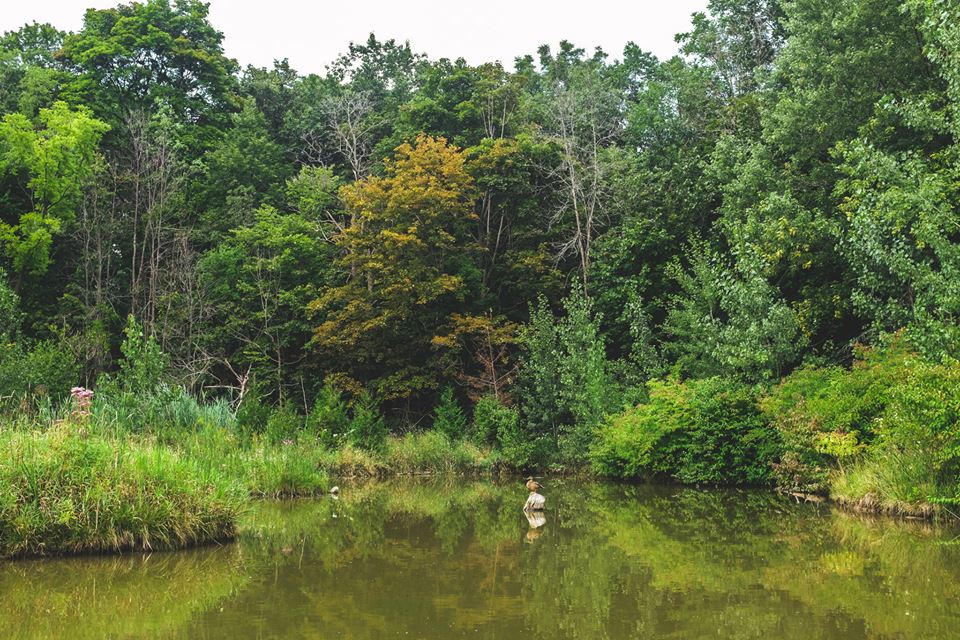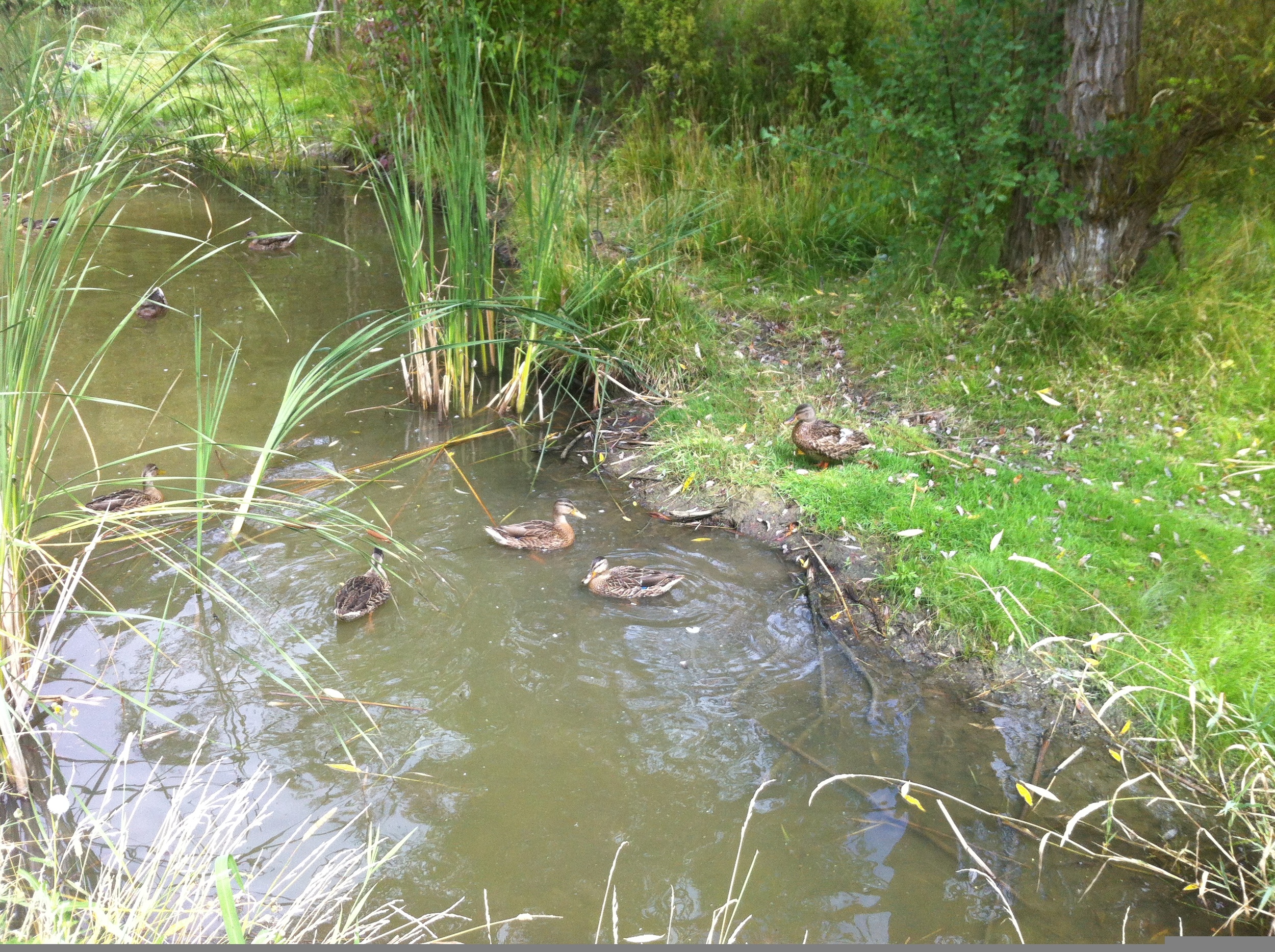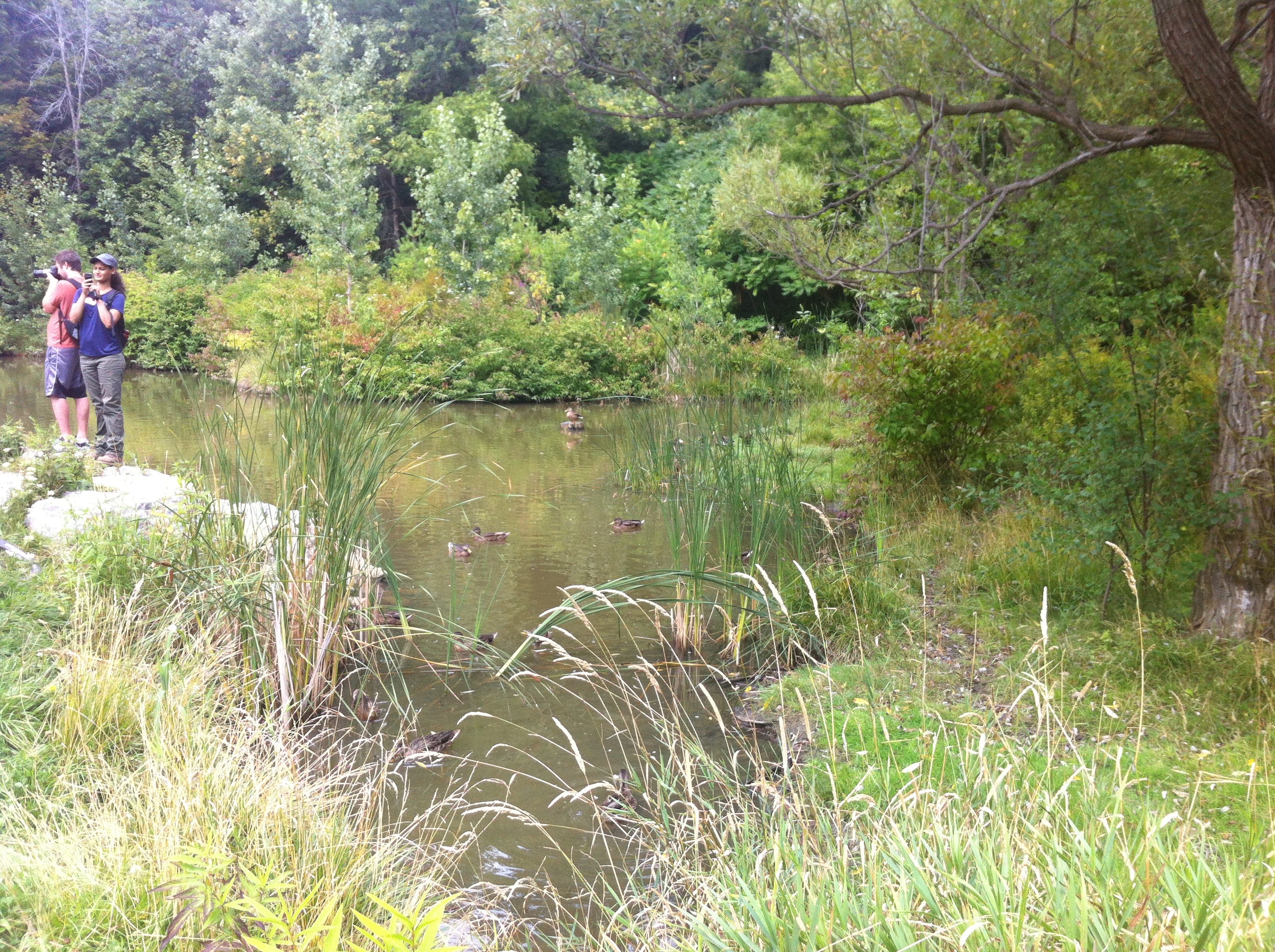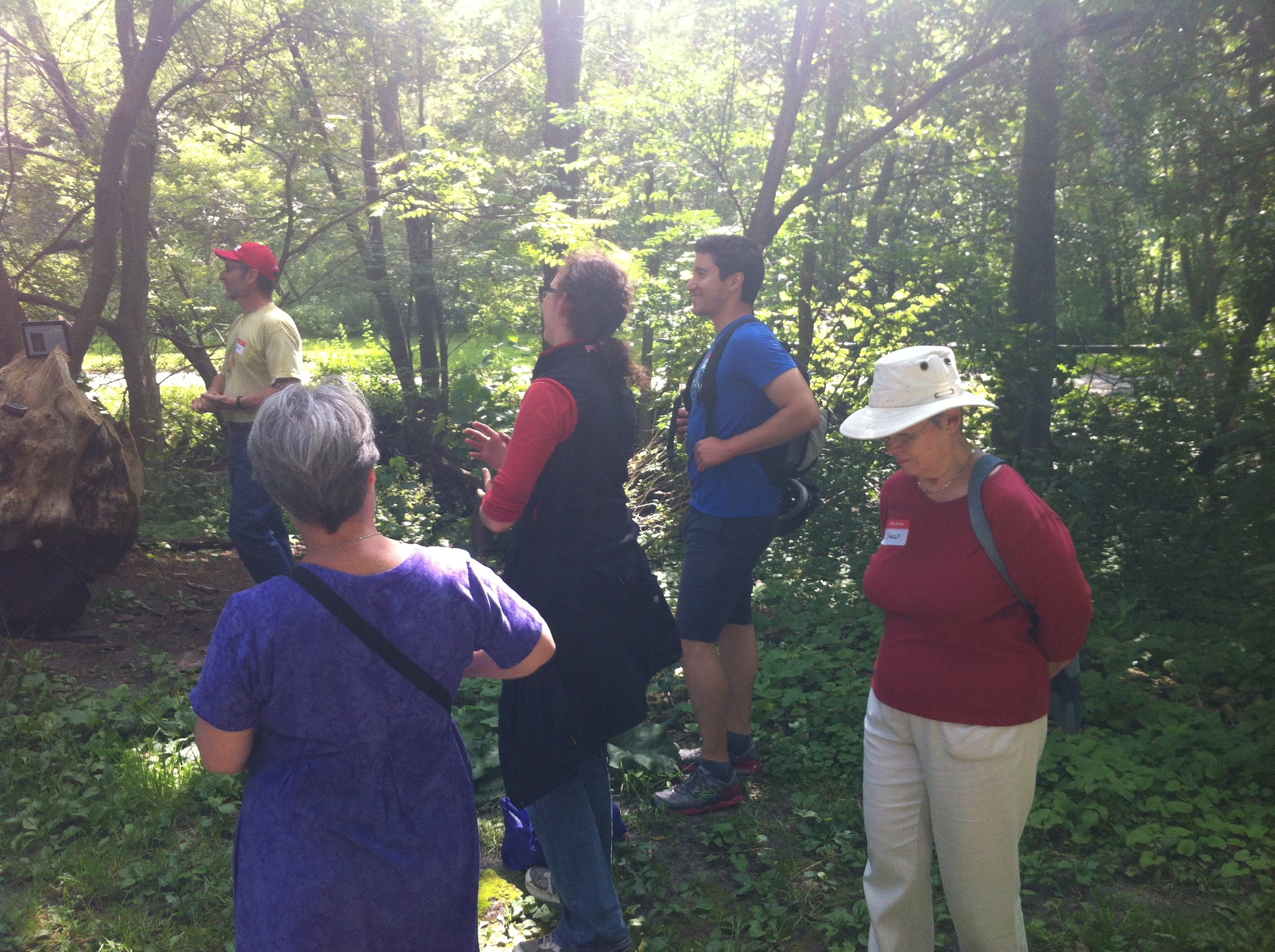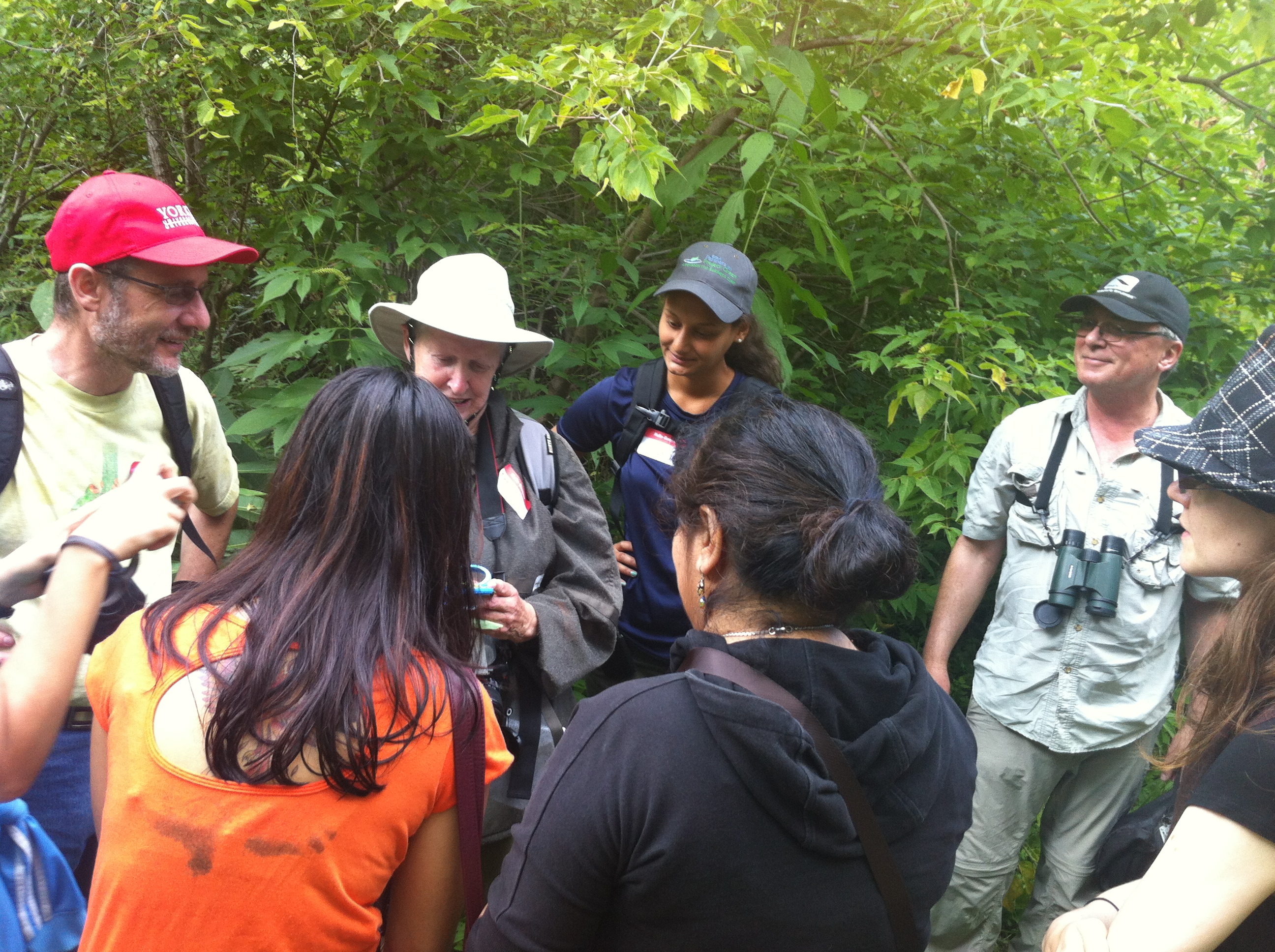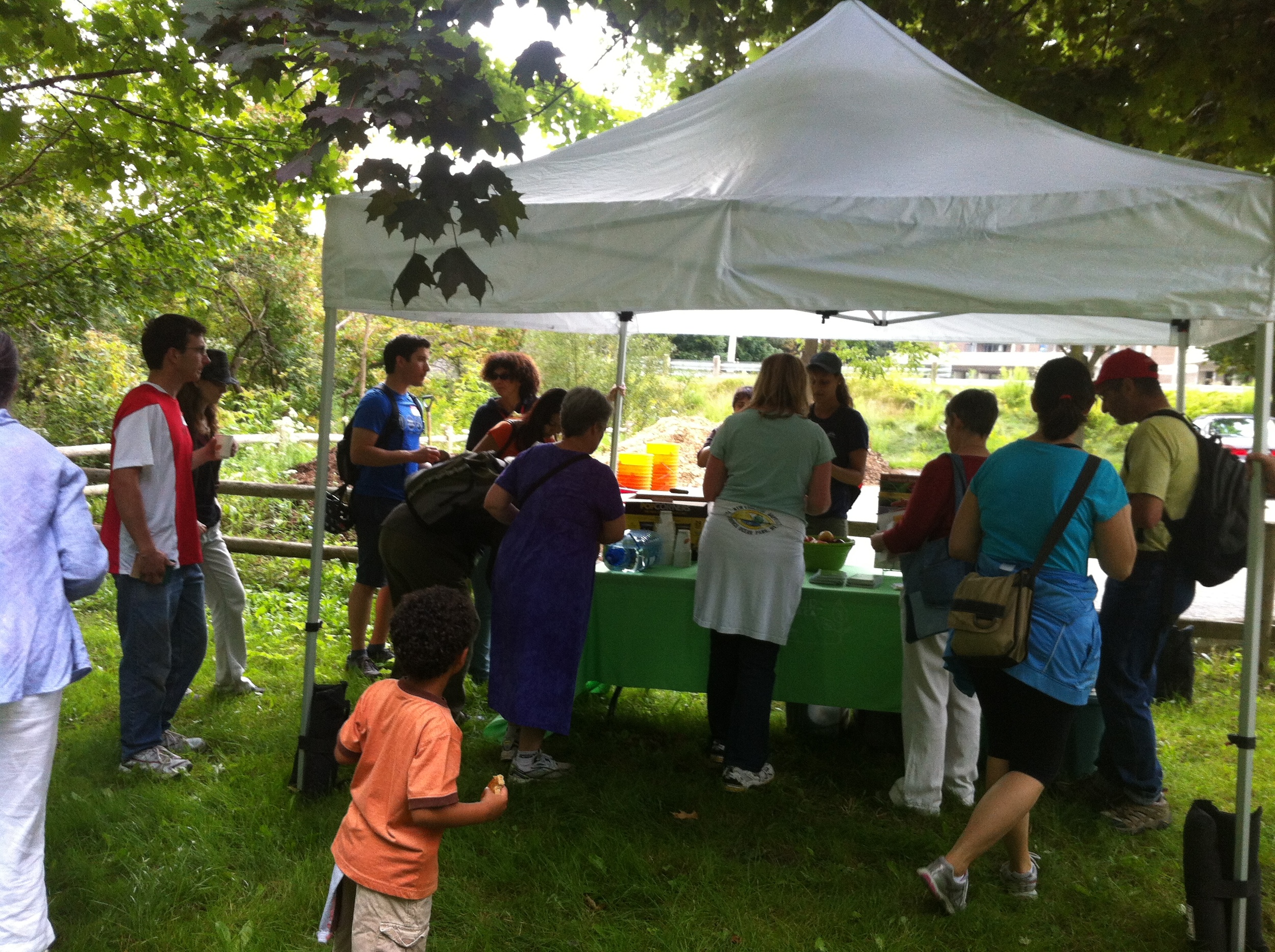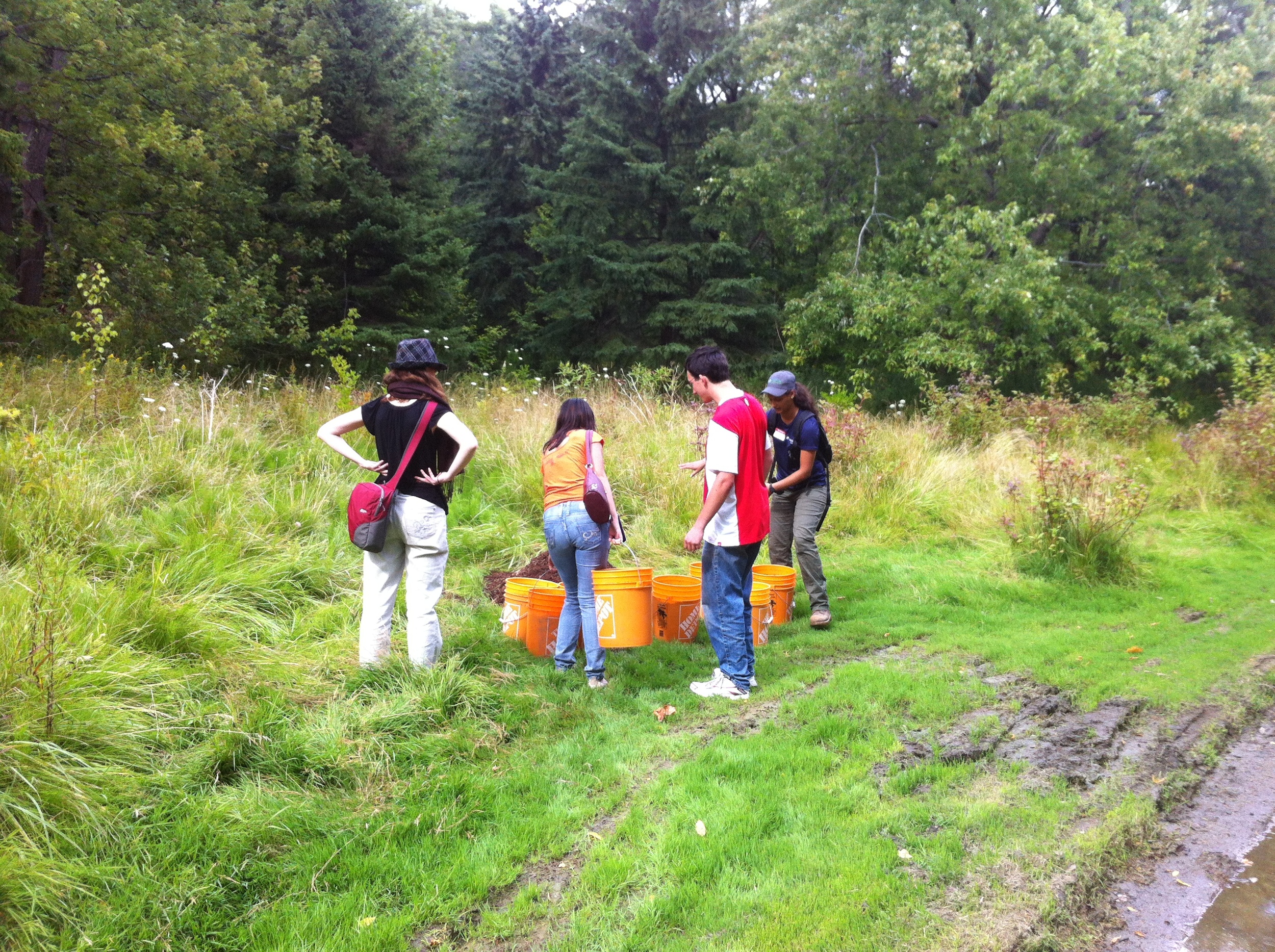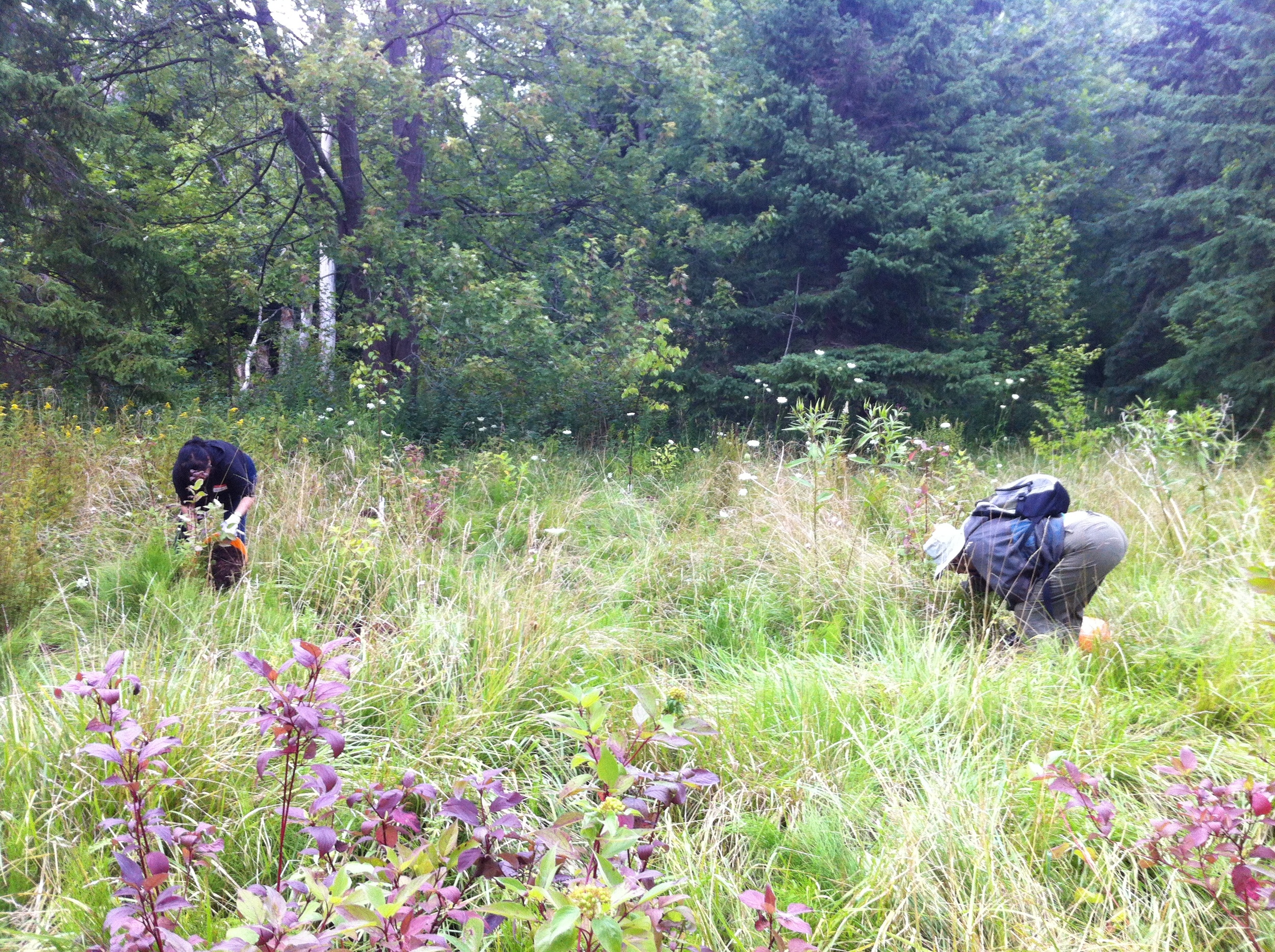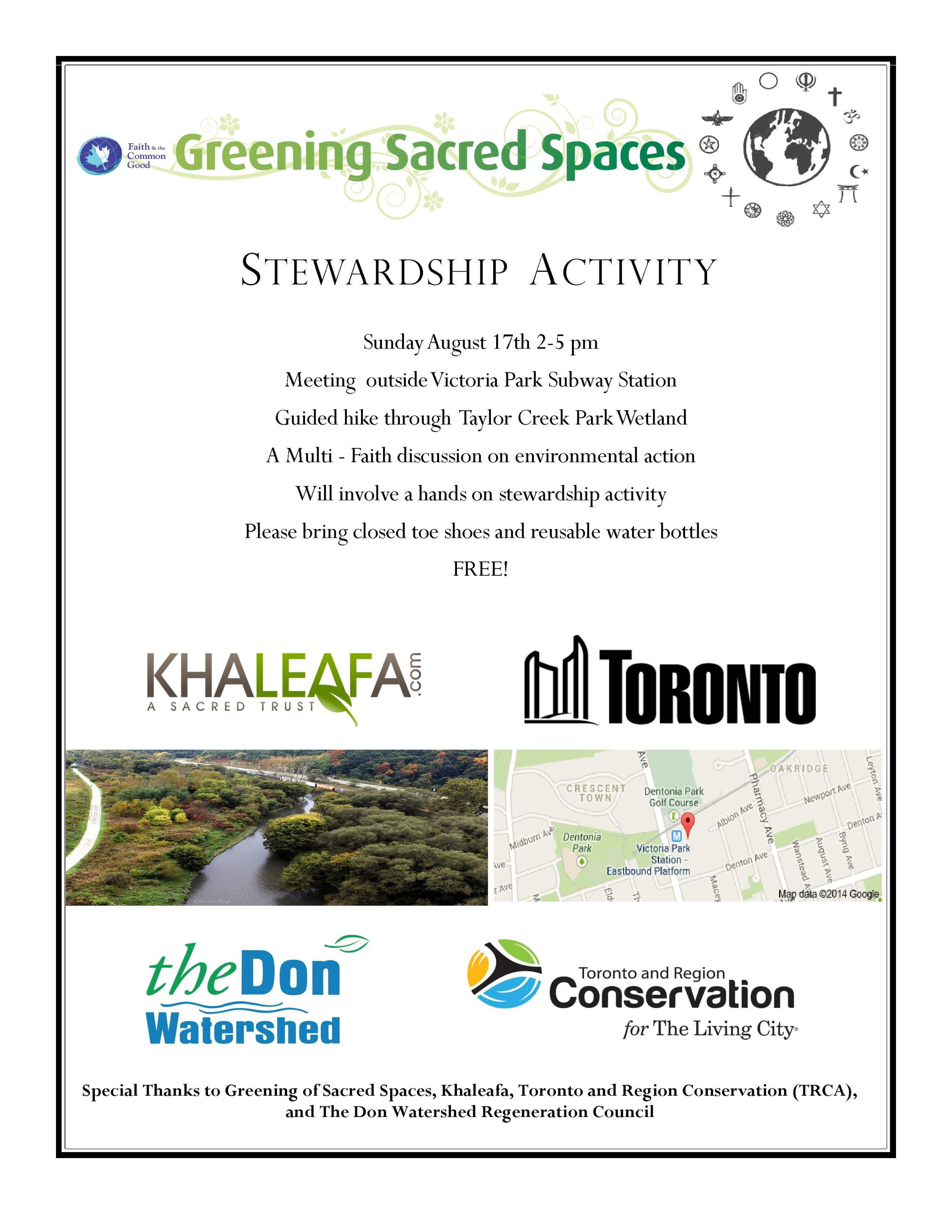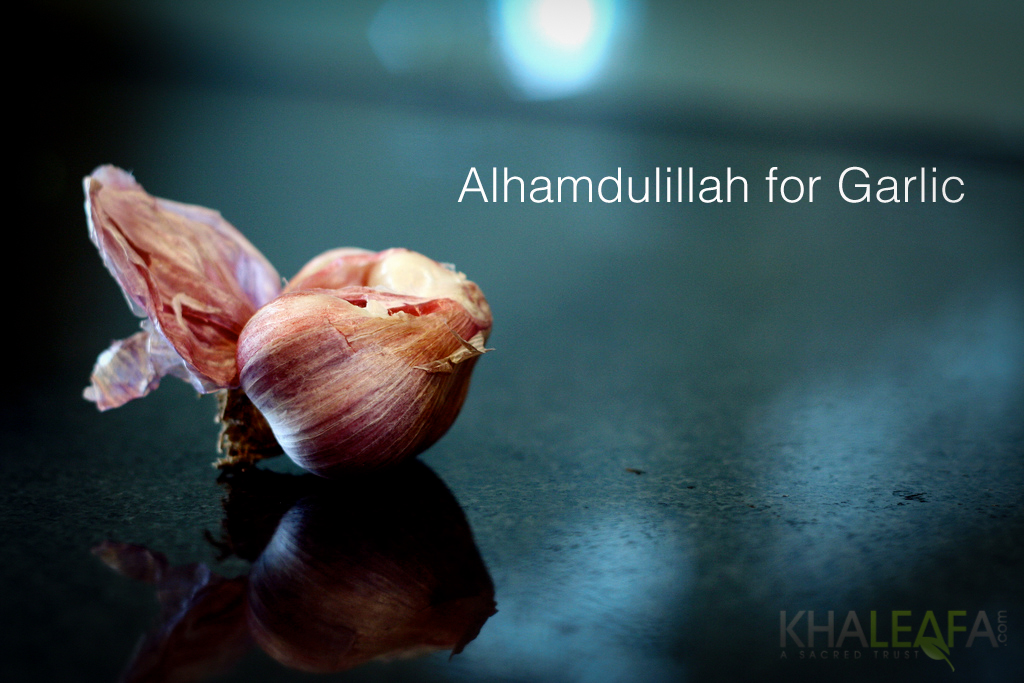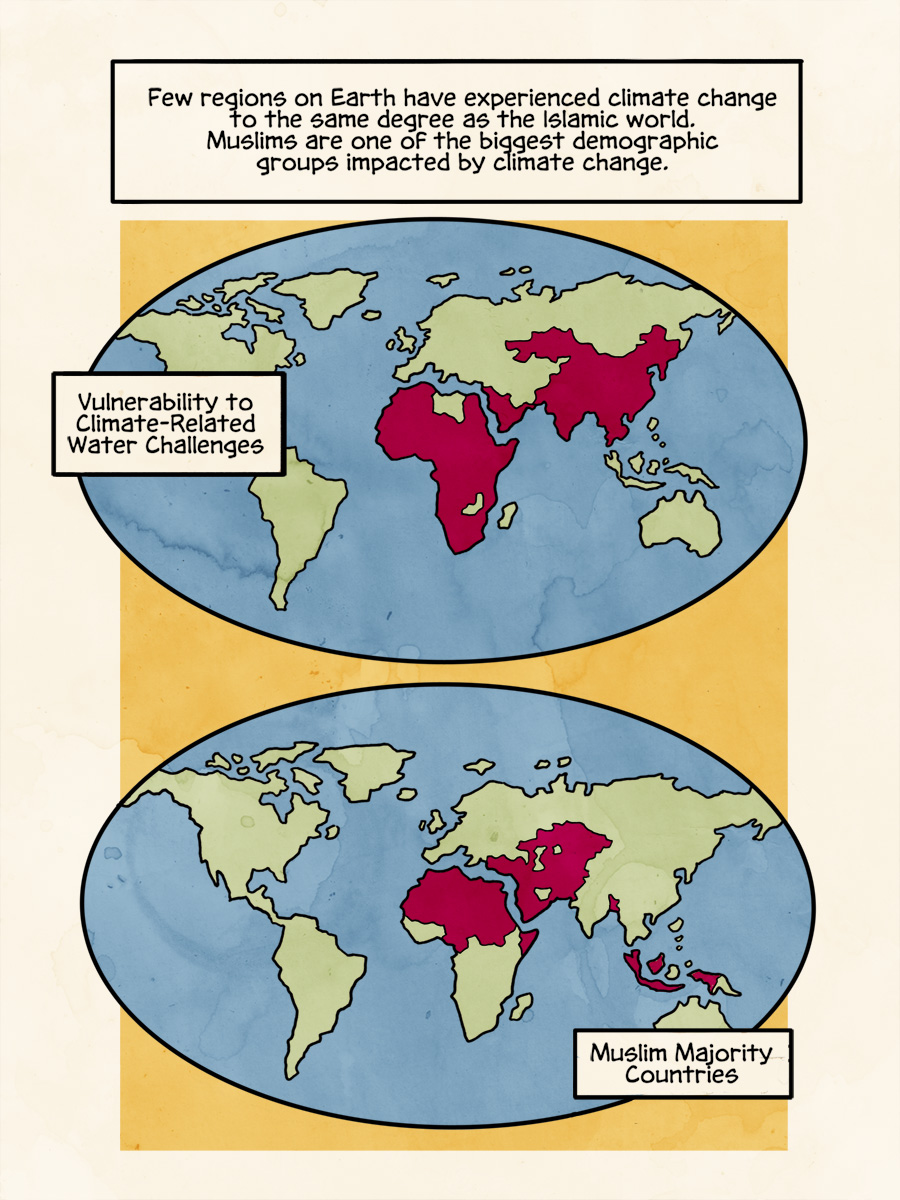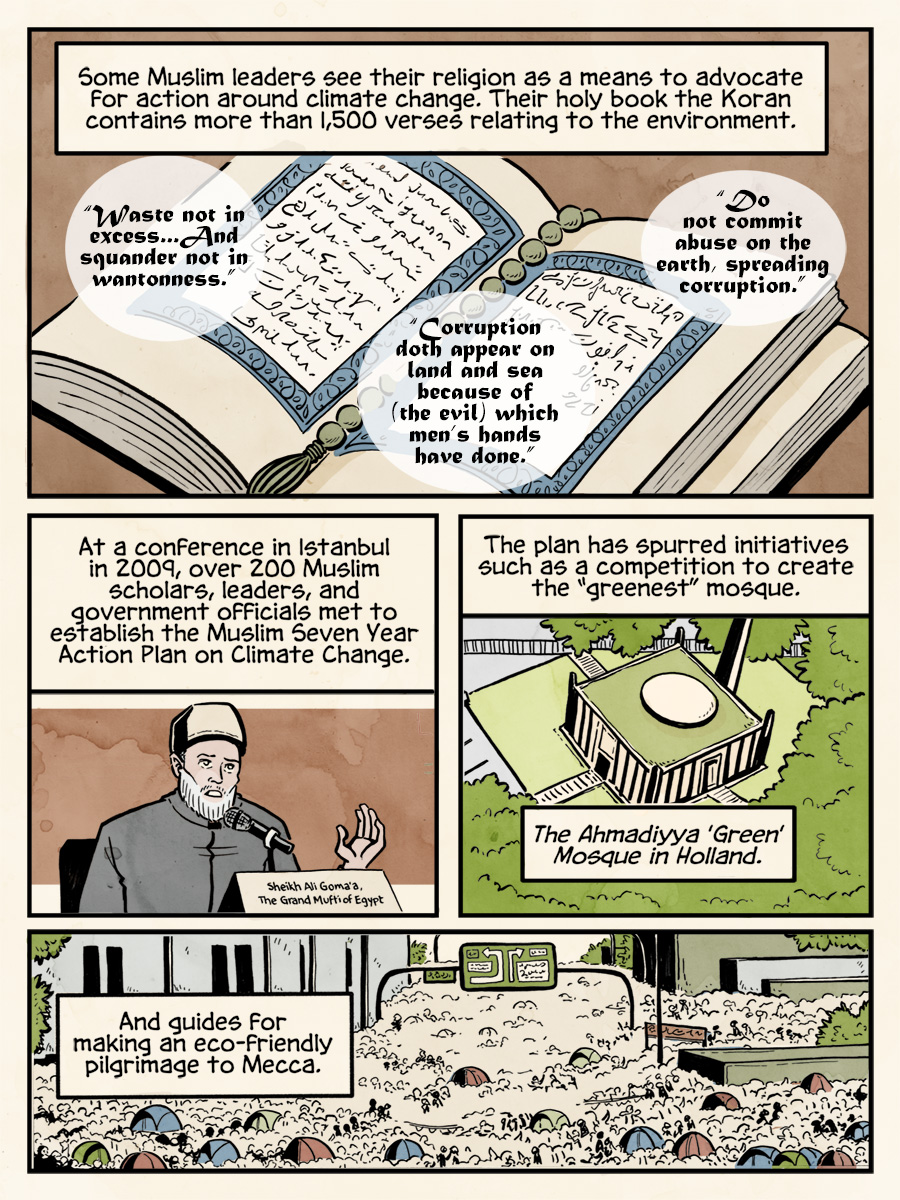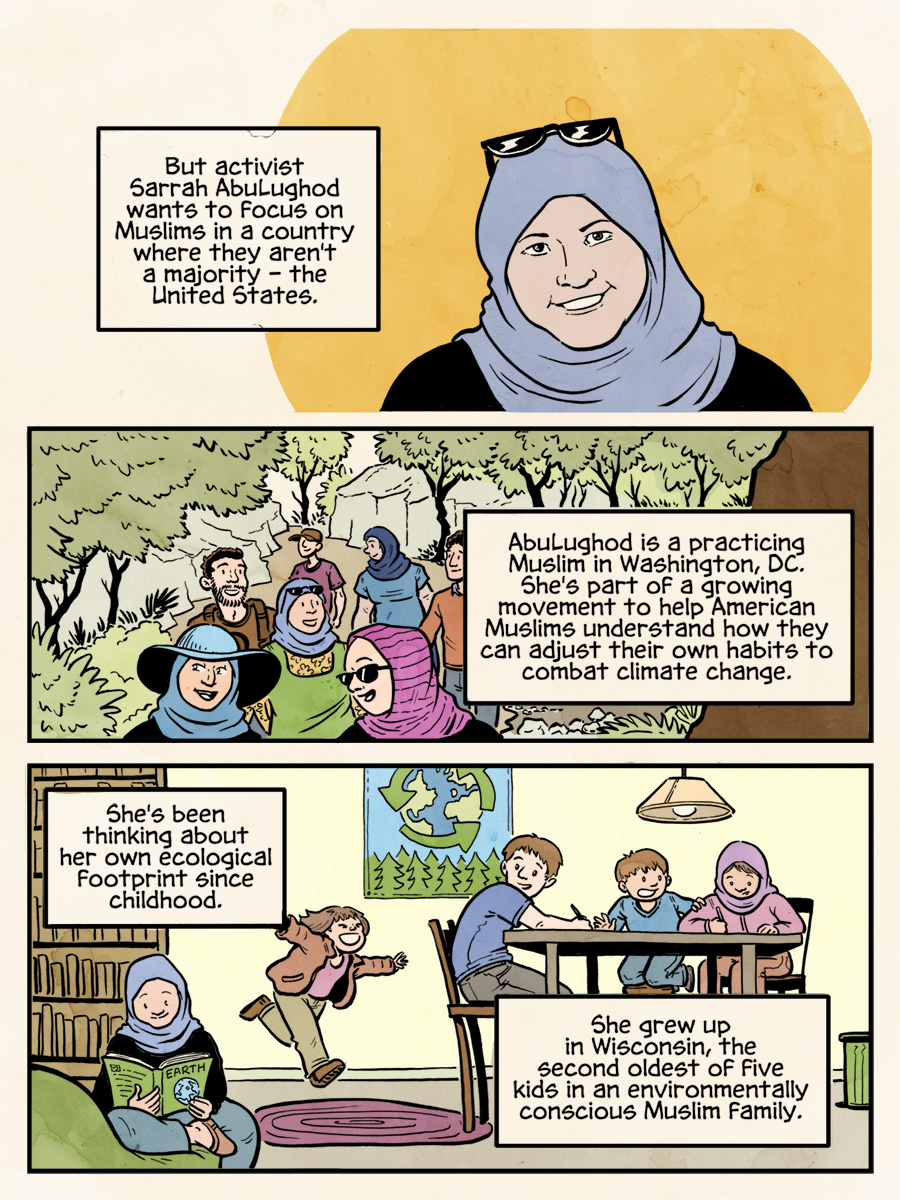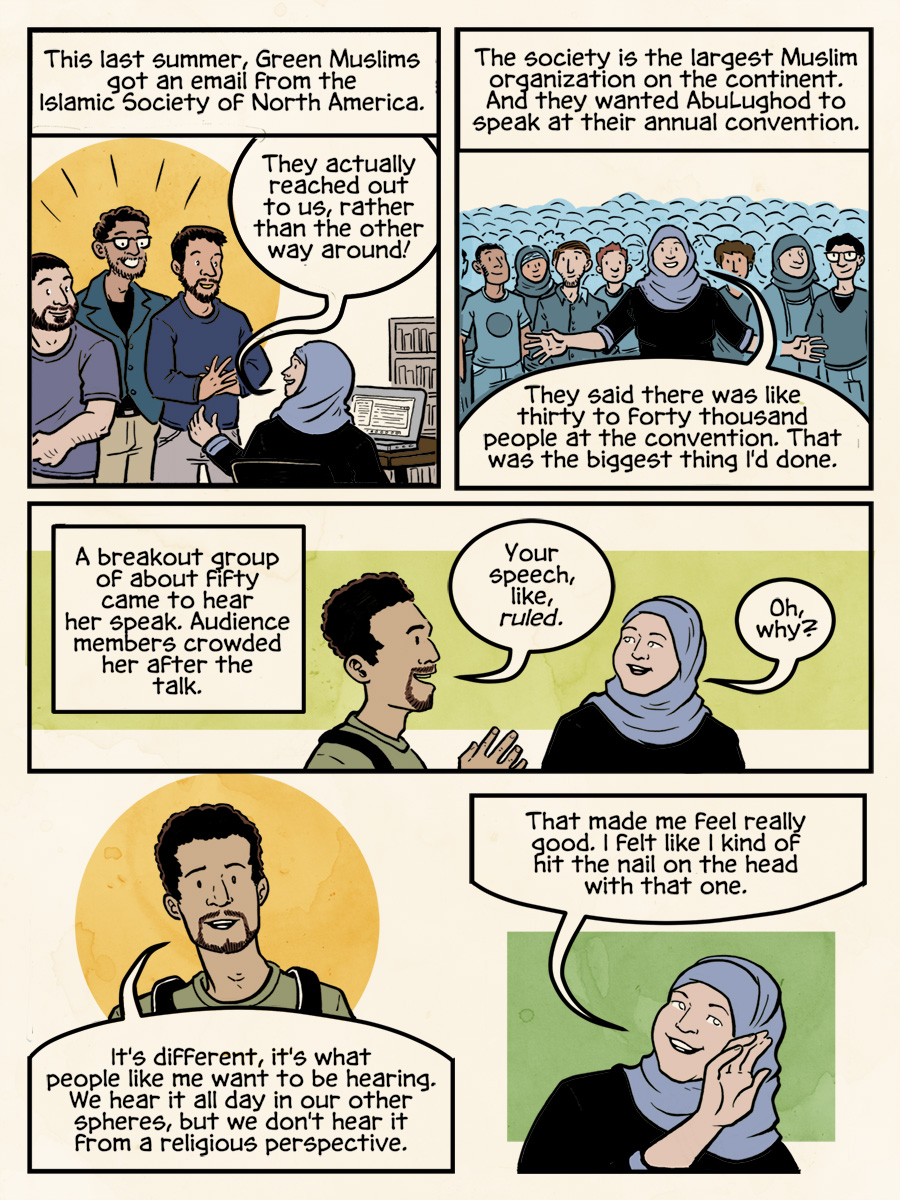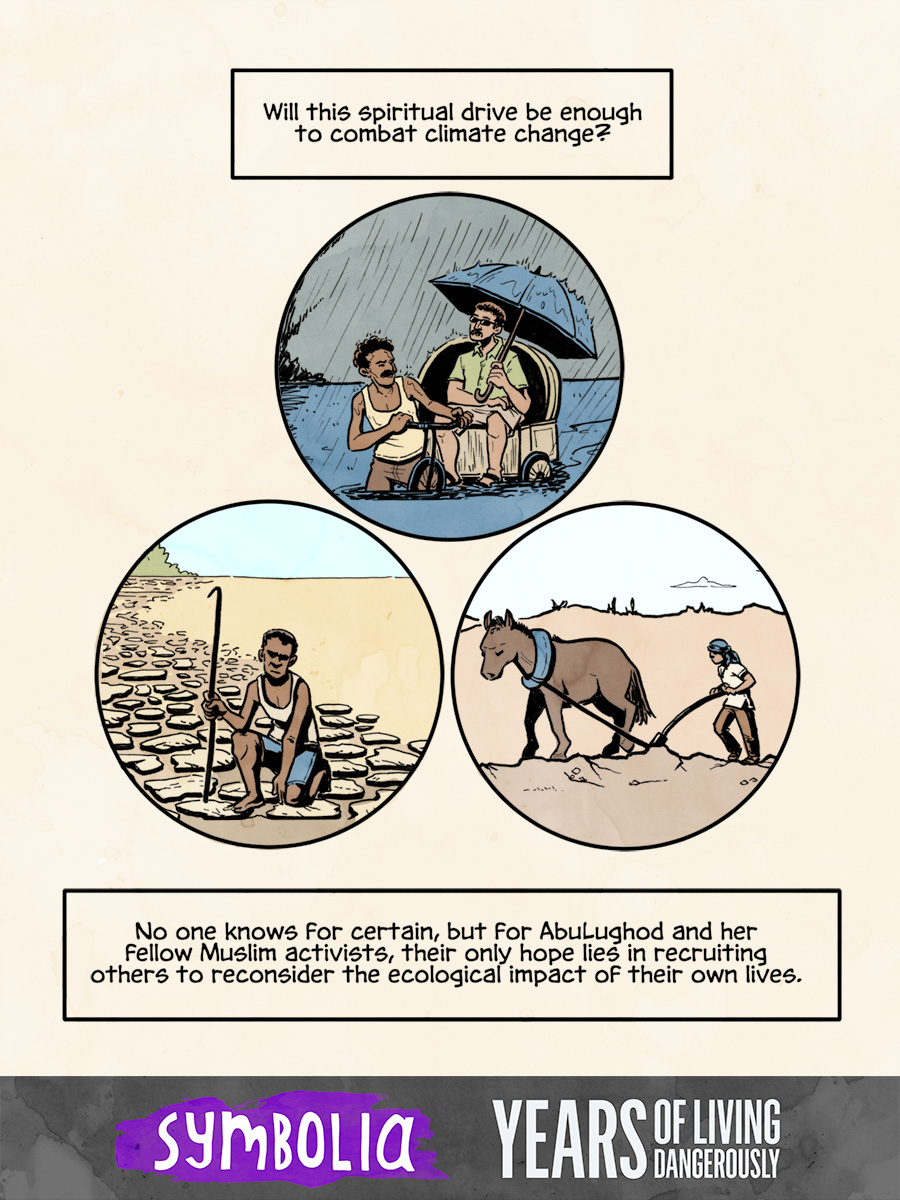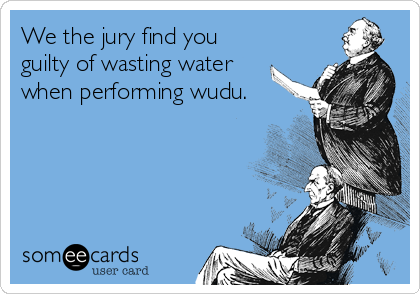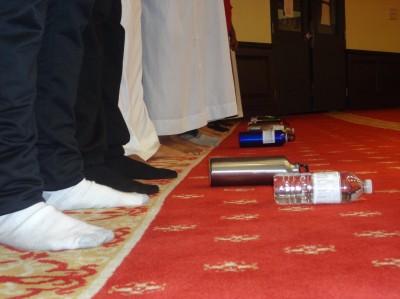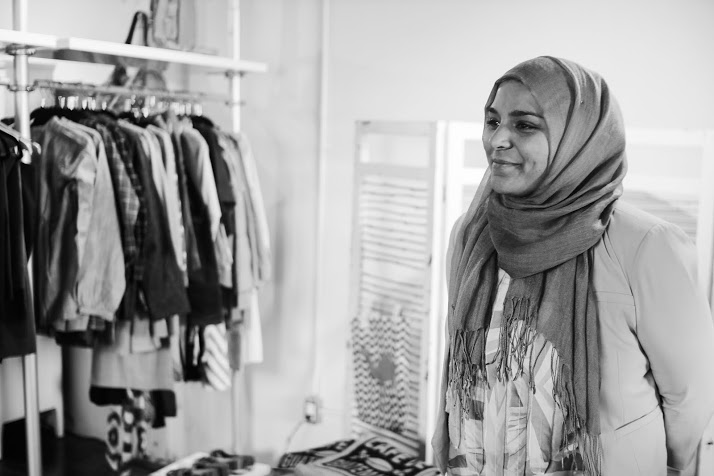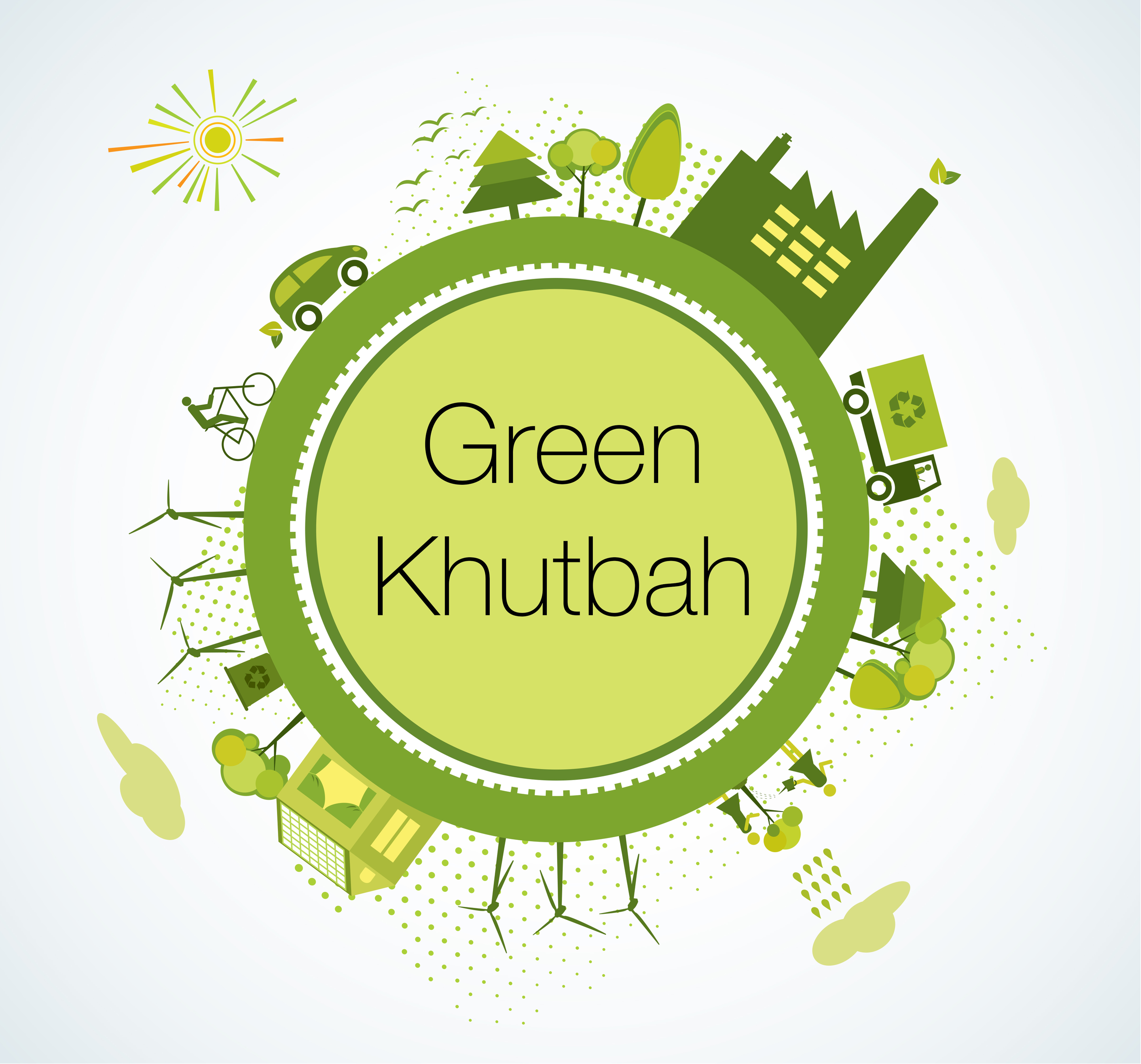By: Shaykh Hamza Yusuf
[The following is the video and transcript of Shaykh Hamza Yusuf's lecture entitled 'Fair Trade Commerce for a Better World.' The transcript includes slight modifications for the sake of readability and clarity. This transcript originally appeared on MuslimMatters on March 28th, 2014].
All praise be to Allāh (SWT). I’d like to thank Allāh (SWT) for the blessing of all the angels that come with all of you. You brought angels into this arena and inshā’Allāh Allāh (SWT) will let us taste some of the pleasure of angelic presence.
Alhamdullilah, what I wanted to talk about was fair trade, and extending that meaning beyond the confines that have defined it in the dominant western discourse. The Qur'an tells us not to consume “wa la ta'qul nasi bi batili”. Don't consume the wealth of people falsely, unjustly, vainly. Batil is everything that is empty, it's what's not good. So it's the opposite of haqq, which is truthfulness, sincerity, reality, what is real. So it says don't consume the wealth of people unjustly. “takuna tijaratan aow Ila tijaratun an taraadin minkum,” let your trade only be trade that is mutually content. In other words, each side is content with the actual event of trade and commerce. This is an incredibly important point, all of the Qur'an is important but this verse is so central to what's happening right now globally, and why we're seeing so much turmoil in what are called the markets.
These global markets, where wealth is consumed unjustly. People's wealth is stolen, misappropriated, given to people without the right accountability. And this is happening in many many places. And so Allāh (SWT) tells us that “tejarat”, commerce should be fair. In other words, each side should be pleased with the event that's happened, that's transpired. Allāh (SWT)also says in Surah Rahman, “wa wada'al meezan, al-laa tatghow fil meezan”. He placed a balance, scales, that you not transgress the balance. Historically, our scholars identified these verses that are between the heavens and the earth. They're between, if you look at Surah Rahman, it opens with heavenly, celestial discourse, and then it talks about this balance and then it goes, “wal ardha wada'a ha lil anaam” and we placed the earth for all living things but between those is the balance. This refers to all types of balance. Allāh (SWT) has given an economic balance, and this is historically how they understood it, the prohibition of cheating people in the marketplace, which is related to this balance between the celestial and the terrestrial. And Allāh (SWT) reminds us that the earth was placed for all creatures, al-anaam are all living creatures. It's not just the human beings. Some of the commentators say “an'aam” comes from “nowm” which is all things that sleep, because sleep is the gentle tyrant. It's what Allāh (SWT) has given us to remind us that He is “Qaahirun fawqa ibadihi,” that Allāh is overpowering, overwhelming His servants. The fact that we have to sleep at the end of the day, and our lives are rounded by this little sleep.
So the idea of just commerce and balance is very important in the Qurʾān. Historically in the marketplace -and this is unfortunately no longer the case because of digital scales- but historically you had scales in the marketplace, so people could actually see the justice. If you bought a pound of fruit, the merchant would put a pound weight on the scale, and then he would place the fruit on the other. And in Islamic tradition they used to always tip the scales to be on the side of the buyer, not on the side of the merchant, because the Prophet (saw) said may God have mercy on a man or a woman, who is forbearing, who is forgiving, who is generous, when they sell or when they buy. And I've seen this many times when I was in Fez or places in Morocco, they would do this. They would tip the scale, they'd put an extra date to tip the scale, just to show that you're getting the extra, because they wanted that ziyada, that extra, ofihsaan.
We're living in a time of incredible economic injustice and that injustice is because we have an unjust economic system. Economics now has become a necessary science to understand. You have to understand the basics of economics to be living on the planet that we're living in, because it's affecting all of us. It's affecting our lives. We have to understand the false dialectic that's been created between the so called Keynesian and monetarist. This left/right dialectic, as if there's no other alternative to these two approaches to economics because the Muslims have an alternative, but unfortunately we've been absent from the discourse. Even though much of what is beneficial in western commerce came out of transacting with the Muslims. In fact, “average” is from an Arabic word, because merchants they used to say, and you can look this up in chambers etymological dictionary or google it. Average is an Arabic word because merchants used to have a type of takaful, when they would send a ship with goods, and if goods were destroyed, a portion of the goods were destroyed, they would take an average and all the merchants would share in it. It was a type of insurance. So this came, ta'reef, tariff, is from the Muslims because we forget that our religion is a religion of commerce. I reflected deeply at one point when I was studying the sīrah, why the Prophet (SAW) would be a merchant before he was a prophet. Why was he a merchant? Because Allāh (SWT) could have made him many things, but he made him two things: he made him a shepherd in his youth, and he made him a merchant in his adult manhood. He made him a shepherd because all prophets are shepherds because the essence of being a prophet is caring for a flock, it's caring for people in a way that the shepherd does not want any harm to come to the flock. And who does the shepherd guard the flock from? The wolf. The wolf.
The reason, I believe, the reason that the Prophet (SAW) was chosen to be a merchant was because the merchant is the most beneficial human being in human society. There's no one more beneficial to human society than a merchant. Everything, the chairs that you're sitting on are from commerce, the clothes that you're wearing are from commerce. The glasses that you're looking through if you're looking through glasses, are from commerce. The fillings in your teeth are from commerce. The medication that is keeping your blood pressure low right now is from commerce. Everything that is beneficial to the material wellbeing of the human being is from commerce. But there's another secret in commerce. Commerce teaches you good character, because the most successful merchants are the ones with the best character. You go back to people who treat you well, and that's why historically they used to say 'customer is king.' The customer is always right. A merchant shouldn't get angry because even if the person buying from him is making him angry, he'll lose the sale if he starts getting angry because the person will just walk, walk out. And so it actually creates good character. Tahleebul nafs. Akhlaq. “Wa innaka ala khuluqal adheem” – you're on a vast ethos, (SAW).
But the other thing about commerce is, if you want your commerce to be successful, you have to be trustworthy. That is the essential characteristic of commerce, trustworthiness. If you give your word, you stand by it. If you write a note, you fulfill it. If you promise goods on a certain day, you fulfill that. And if you don't, people stop doing business with you. The Prophet (SAW) before Islam was known as al-āmīn, the Trustworthy. He was known as al-āmīn because he was the most trustworthy of merchants. People knew that if you gave him your money, not only did you get it back, but you got it back with great benefit. Khadijah never had anybody that transacted with her money like the messenger of Allāh and should we be surprised? And when she sent Maysara out with him, and all the people around him have beautiful names, like Maysara, and Umm Baraka, Baraka, Ummu Ayman, Haleema as'Sa'diya, they all have beautiful names, all the people that raised him and nurtured him. So he's with Maysara, the place of ease, the one who makes things easy, and Maysara noted all these things about the Prophet (SAW) and informed Khadijah [but Khadijah had insight into who he was before anyone else, which is why she's Khadijatil Kubra (MPWH). Her name Khadijah is from khidaaj, which is like naaaqis. It's used in the Arabs would, if a child was born early, they would be thin and skinny, they would call them Khadijah. But she's also naaqis until the Prophet (SAW) completes her. Khadeja al-Kubra was a merchant and she used her wealth for the sake of Allāh (SWT). Abu Bakr was a merchant. He used his wealth for the sake of Allāh (SWT). Umar. All of these people, look at them. The people around the Prophet (SAW), the Qureish were the great merchants of the Arabian Peninsula. But he went to the people of agriculture, because these are the two forces in the world, agriculture and commerce, these are the things that make the world go round, they're what enable us to survive and they're in our original story, is all of the human condition. Everything is there in that original extraordinary story of the messenger of Allāh (SWT).
The Prophet (SAW) told of principles of commerce. One of the principles that he taught, (SAW), was that the truthful merchant is with martyrs on the Day of Judgment. Theulema say that it's because of the rarity of a real merchant. Imām al-Awzai once was in Beirut, and he passed by an onion seller and the onion seller was saying, onions sweeter than honey, and imām al-Awzai said to him, do you think it's permissible to lie about something like that? That's called advertising. Don't think advertising is some new thing. Arabs were marketing a long time ago, they used to market with poetry. Now we have jingles plop plop, fizz fizz, oh what a relief it is. The Arabs had jingles as well, right. I wish I could get that part of my brain back, that that got lodged into. But they're very good, these jingle makers. Jingle bells. They used to advertise, but truthfulness is important. The Muhtasib, which is like the ombudsman, it's the person that goes into the marketplace for quality assurance. It's a person that is an interface between those who regulate the weights and those who are weighing in the scales in the marketplace. Umar appointed Shafa or Shifa as the muhtasiba during his time. She used to go in the marketplace with a stick and she would turn over fruit to make sure the good fruit was not on the top and the bad fruit on the bottom. If you go into a store now you will get your strawberries. They have all the big ones on the top and then the tiny ones on the bottom. That's not by mistake. But it's a type of “ghish”, because you buy the big ones and then when you open the package you get all the little ones one the bottom. Although little ones can be better than big ones. So this is what the muhtasib did. The hisba is part of our tradition, having quality assurance in the marketplace. This is part of the Islamic tradition and we forget this.
Now one of the things that is very striking about our age is the incredible disparities between the north and the south. The north and the south, and this is something that was pointed out in the seventies by Brant in Germany, he wrote a book about this. So this is, this has been going on for a long time but people in the west, the best of the people, Ulul Baqiyya, those people that are still on virtuous tradition from their ancestors, these people are very concerned about these disparities. Canada is one of the countries that has a real concern. Many of the best countries in the world, if you look at them today, that have the highest social indices in the world have a great concern about social justice. Not just in their own countries but in other places.
And so what happened, you had a movement that began from a Mennonite Christian woman and the Mennonite community is a strong community in Canada. She went to Puerto Rico and she witnessed the types of social disparity, and it troubled her and she wanted to help. And so she thought of bringing goods paying good prices, just prices to people in Puerto Rico and importing those goods into these countries like United States and Canada. And this was the beginning of the fair trade movement.
CNN recently reported from a website that was supported by, was actually a state department funded project that the average American has, and this would obviously be very difficult to work out. But it's interesting to think about. The average American has 59 slaves working for them around the world. 59. In other words, your lifestyle is based, our lifestyle, not yours, I'm putting myself in there too. Our lifestyle is based on the suffering of other people because, for instance, and I've stopped eating chocolate for this reason, when I found out, and you can see the film on this. There's a documentary that was done on it, on the child labor in harvesting cocoa, that 70% of cocoa on this planet is harvested by child labor. And so when you're eating that chocolate, your pleasure is somebody else's pain. And if you don't think that's having an impact on your being, then you have to wonder why everybody's on Prozac in these countries. Why are people so depressed? They're depressed because, because much of what we're enjoying, the fruits of our cheap lifestyles, of our cheap gasoline, of our cheap clothes, of our cheap shoes, all of these things, the Walmart world of cheap goods is based on exploited labor from other places. Not only is that exploited labor the pain and suffering of other people but its direct result is the unemployment that's happening all over these western countries. They're losing their jobs because they're going to Walmart and buying something that's made in Indonesia with labor laws that don't exist, often in incredibly difficult conditions, people working in factories that are really subhuman, and they will buy that instead of buying something that was made by somebody in their own town. There used to be people that made shoes, Americans and Canadians and these other places, they actually used to produce things. That's no longer the case. But it's not fair because it's based on the exploitation of other peoples. And we have to deal with the fact that this is the life that we're living.
Now the other aspect of it is we have multinational corporations and not all corporations are evil. And I'm not going to go down that route. Not all corporations are evil. Just most of them. There are socially responsible corporations, but many of them are not because they serve the bottom line.
There was a study done where somebody took corporate behaviour and then took the DSM which is the diagnostic statistic manual, of mental diseases and took the sociopathic personality and matched the fact that corporations mirror almost exactly sociopathic personalities. The corporation is a legal person in the West, even though Shaykh Abdullah bin Bayyah, may Allāh preserve him and unfortunately he wanted to come, Shaykh Abdullah bin Bayyah was the only person on the fiqh council that was against the idea of making corporations legal persons, because he said it's against the sharia principle. There has to be human responsibility. You cannot have a corporation that's run by people, and that those people can walk away from the corporation scot-free when the corporation does all these terrible things. So you can sue the corporation but you cannot sue the people behind the corporation. And he was against that idea, and they were saying, Shaykh this is the age we're living in, this is, and I told him, when I told him I said, you know, the most progressive voices in America, and in the West are saying the same thing that you're saying. And he said they should come to the fiqh council and help me out.
Now we have to understand that the fact that we support these corporations is impacting our lives. And here's what I'm going to say, people say what can I do? There's a lot you can do and so the first thing you can do when you go home is go onmoveyourmoneyproject.org. You can move your money out of banks that are doing all these heinous things and put them into credit unions and local banks but this is only a temporary solution. The reality of what we have to do, and I've started this process. We all have to do it, you have to move your money, get it out of these multinational banks that are. Listen, if you want to understand what happened in Egypt, what happened in Egypt, Tunisia, Syria, all these places, it's directly related to what happened on Wall Street. Because the commodities market zoomed up because all the real estate was collapsing and so they start putting their money into commodities, commodities go up, and suddenly the Egyptian who's paying 25% of his income for food is now paying 45% of his income for food, and he can't afford it. And they're literally starving. This is happening in many, many places around the world. People are suffering from this unjust, economic system that has to be identified, the culprits behind it need to be identified because these are real people, and they have names. And they are doing things that are completely immoral. They're doing things that are absolutely immoral and we're all suffering from it.
Canada's been spared a lot of this egregiousness because there were much better fiscal policies here but don't think that you're free from it. And the other thing is, if we go, you go. So you better hope that because 80% of your economy is tied to our economy. And you should know that so don't get high and mighty. Like we, I've put maple syrup, I use it on my oatmeal, Canada Imported. So I'm supporting Canadian economy in my own house, alright.
So what you can do is move your money, but that is only a temporary solution. Muslims need to develop their own banking systems. Anybody can open a bank if they have a charter, it's not hard to do and banking is the biggest scam that's ever been perpetrated on people. Really, if you understand banking you will be amazed at what they get away with because this is the only private company that can create money out of nothing. We all have to earn our money, they just literally create it out of nothing. And so you need to understand we as, as a community need to open banks but they can't be like some of these shifty shady things that are going on, Sariah complaint, quote, unquote, right. And Canada has already tasted the bitter brunt of that, alright. So we have to, really, we have to have our own banks. The other thing we can do, we have over 50, 000 doctors in the United States of America and you've got many Muslim doctors, 50, 000 Muslim doctors. And I've said this before but when, when an American comedian on national TV said I went to my doctor and he said faceMecca and cough, and everyone in the audience laughed, you know that Muslim doctors are having an impact on this society. People put their lives in the hands of Muslim doctors every day.
Muslim doctors are paying hundreds of millions of dollars in insurance. Every month. Who are they paying it to? They're paying it to Blue Cross, I thought we didn't believe in crosses? Really, they're paying it to mutual insurance, they're paying it to all these companies. We have a system called takaful which is superior to this insurance system where you actually, you're investing your money, and then if something happens then the money comes out of that. This is a superior system, you would get people from other faiths and non-faith people, they would want to be part of this because they wouldn't be just losing their money every month. But getting something back. We need Muslim insurance companies. All you people here are paying auto insurance, where's the Muslim insurance company, that could be a non- profit insurance company? That could be giving back to the community. Where is it? Where is our creativity? Why aren't we thinking economically? We're literally spending so much money on these societies, and what are we getting back for it?
Reasonably good governance, pretty good roads, you know. Good amenities, nice municipalities, but much of it is being squandered on companies that are doing terrible things. They really are. And if you read the fine print in a lot of these insurance companies, it's amazing what they get away with. All you have to do is look at what happened to the people in Katrina, they had insurance against hurricanes. But because the dam broke they blamed it on the dam. And said oh it wasn't the hurricane, and people lost their houses. I mean this is the type, this is totally unethical.
The Qurʾān is about giving people respite until things are easier for them. Muslims don't foreclose homes. Really. Bank robbers don't chase people out of their homes but bankers do. Really. It's amazing what they get away with.
Woody Guthrie, the great American poet said some will rob you with a fountain pen. Some with a sixth gun, and some with a fountain pen. I mean people were completely robbed. All these securitized loans, derivatives packed in. And they were robbing everybody. It wasn't just the people that were signing those deeds. They were robbing the firemen's insurance, the teachers' insurance, peoples 401 k's all of these people that thought their retirement was in triple A loans, standards and poor, and it wasn't triple A loans. And then they were betting against themselves. This was what was going on, complete unethical behaviour. Now if you look, Spanoza said that greed, avarice and covetousness are species of madness, they're types of madness. We forget that, that these people are actually insane and yet we give money. Allāh (SWT) says don't give idiots your wealth. Don't give idiots your wealth. Allāh says this in the Qur'an, do not give your wealth to people that will misuse your wealth. We are empowering them with every check we write. With every time you use that credit card, use cash. Don't give them that 4%. Why should some middle man, some sar'a.They're trying to eliminate cash. Who wants to eliminate cash? The bankers do because they'll get 4% of every human transaction. Don't let them do that. Start using cash.
But that's only a temporary solution. We need to recognize that, commodity backed wealth is the only sound form of wealth. Commodity backed wealth is the only sound form of wealth. They will argue, and let me tell you something about economics majors. Economics majors go through a brainwashing program. Seriously, because they come out of it with all these ideas and if you try to say something like uh, you know we need to get back to a bi-medal economy, oh no that's, that's passé, they got rid of that. It was a bad system it doesn't work. Who said it doesn't work? It worked for thousands of years. Human beings traded in gold and silver for thousands of years. Gold rarely inflates. It inflates when new mines are discovered, but there's only about a 2% increase in gold every year, so it's very minimal. But look at the inflation that your money is having. You know, Robert Frost wrote a poem that he never published about currency. And in that poem he said, the pain of seeing ten cents turn to five, we clutch fiercely at the part we think we feel it in. The head, the heart, is someone cutting us into a lie, is someone at us, cutting us in half? We cast a dangerous look from where we lie, up to the enthroned kings of earth and sky. They know too well what's good for them to laugh. Right? He was talking about inflation, 1919, inflation, when Woodrow Wilson to pay for all the war problems, printed up all this money inflating the currency and paying. Why do you think the Chinese are angry? Because they're seeing all of that money that they're holding is being inflated. They know what's happening. There's a book recently out called, Currency Wars, threatening about the collapse of the dollar, and the fact that we're in a currency war. If what's going on in Europe is currency war against the euro. The euro is being destroyed. The yen, the dollar the euro, the mark, these are the global currencies, and this is happening all around us. And yet we remain oblivious to it because these currencies are fiat currencies that have no intrinsic value. Intrinsic value is in gold and silver. At the time of the Prophet (SAW), gold and silver was a 10:1 ratio. At the beginning of America's bi-medal economy, was a 14:1 ratio, under Hamilton.
In 1873 they prohibited silver, as a monetary means of transaction. Why did they prohibit silver? Because the bankers knew there was more silver than gold, they wanted payment in gold, because farmers and poor people could pay with silver, and it was like having an easier way of paying off their debts, and so they actually outlawed silver in the United States, in 1873. It was considered a great crime and this is where you get William Jennings Brian, don't crucify us on a cross of gold, it was a famous speech that he gave. The wizard of Oz is actually a metaphor, the wizard of Oz, the yellow brick road. In the original story she had silver slippers, because that was the secret. And he was talking about the farmers. The scarecrow represents the farmers, in the agrarian areas of America. The tin man represents the industrial north, the factory workers that were losing their heart because of the alienation of their life. I'm not making this up. This is L Frank Baum, it's the great mythology of America.
We need commodity backed currencies. We should be advocating this. We need economists that study our economics. And not this superficial economics that doesn't challenge the basic suppositions of this system, because Muslim economists now are talking about making halal transactions, that's band-aid, it's a start. Making these certain types of loans, mudaraba, muradaha. Mudaraba is makrooh in the Malikimadhab. It's not an ideal system, the mudaraba system. But making these loans is better than doing the other thing because everybody should have some risk involved.
Ribaa is the great sin in the Qur'an. “Fa'lanu harbin minallahi wa rasulihi,” Be declared war on you. The Prophet (SAW) said, “ya'ti alan nas zaman, kulluhum ya'kulunariba,” all of them will be consuming interest, or usury. Now they say interest but it is usury. All of them will be eating usury, interest or usury, and then the sahaba said, kulluhum”? Because they knew the enormity of this sin. They said “kulluhum, ya rasulullah?” He said all of them. And he said, “wa man lam ya' kuluhu yusabu min ghubarihi,” and the one that doesn't consume it directly, will be covered in its dust. Sadaqa rasullullah. You have to see the prophecy in that. Sadaqa rasullulah. (SAW).
So the other thing that you can do, support your local economies, buy local. Support your local economies. We have farmer markets that are being revived in the United States, supporting small farmers. Getting out of the agro business. All of these diseases are coming from these agro businesses. You have to support your local farmers.
The other thing that is very important is to recognize the problem of food. We live in a completely unjust food system. In America because sugar can be produced much cheaper in places, they put all of these restrictions on the importation of sugar. And so Americans now are eating corn syrup produced in America and getting fat from this corn syrup. Because corn syrup is actually not a good source of sugar. That's an example. But I'll give you a worse example. The most important study that's been done on nutrition ever is the China Study by Doctor Campbell and his researchers. This was a first rate researcher from Princeton, teamed up with Oxford. He was a completely credible scientist, and pre-modern China, died of cancer of the bladder. Before he died, he set aside money to do a study of nutrition in China and disease relation. So this was independently funded. Campbell ran that team, and the result of it is the China Study.
Some things about the China Study that are very important. The first thing is that the result was so radical that the food pyramid was changed, to be more scientific. But because meat and dairy were completely minimized in the diet, the meat and dairy industry in the United States lobbied so hard that they actually changed the pyramid. Which means science is no longer serving humanity, it's serving corporate interest. That's what it means. Science is serving corporate interests that is wrong.
In the China study, what they found, is that in areas where their proteins were less than 5% from meat and dairy, there was no cancer. There was no cancer. The original study was done in Hyderabad in India, and Harvard scientists they laughed at it and they said oh they must have got the cages mixed up. Campbell replicated this science repeatedly.
Some things about meat and dairy consumption. First of all, the meat and dairy today is not the meat and dairy that grandma and grandpa ate. The meat that grandma and grandpa ate were free range, what they would call now organic, they didn't have a word for it because everything was organic fifty years ago. Organic free range, happily raised animals on farms, where they actually treated animals with some dignity. Farmers actually have relationships with their animals. They treated them with dignity.
Now, and my grandfather had a cattle ranch, so I actually spent my summers on a cattle ranch and I herded cattle and I saw. My grandfather, first time I got on a horse, before I got on a horse, he put a pencil in my mouth and yanked it back really hard, and he said that's what the horse feels when you're using that bit, so don't forget it. That was my first lesson because that's the way people taught, they had respect for their animals. In the United States, horses are not categorized as pets, they're categorized as livestock. You can starve a horse to death in America and not go to jail, which is wrong. Horses should have rights, animals have rights in Islam. This is not a new concept. Our religion gives animals rights. Ants have rights. In the book ofzuhd, one of the sahaba used to go out and put bed crumbs on the ant hill that was near his house and one of the tabi'in asked what he was doing, he said I don't' want them testifying against me on yawmul qiyama, that I didn't fulfill the rights of the neighbor. And this is an ant hill. What kind of psychology did these people have? It's a different world they were living in.
Dr. Nasr was alluding to it last night. They lived in a different world. The Prophet spoke to animals. He spoke to animals. Our Prophet spoke to animals. He spoke to them and they spoke back to him, this is not mythology, this is reality. We have people today that still speak to animals. Animals respond to you. They respond to you. They're sensing creatures, they have nervous systems, they feel pain, and they become depressed. In America we have dogs and cats on Prozac. This is a fact. Veterinarians prescribe Prozac for dogs in America. Don't think the dog is depressed because he's a dog. He's happy to be a dog. He's depressed because he's in a house that's depressing. The dog whisperer said, he doesn't go solve people's dog problems, he goes to solve dog's people problems. And the same is true for the horse whisperer, Buck, the horse whisperer said I don't solve people's horse problems, I solve horse's people problems. Animals are intuitive, they know when something's wrong.
Sayyidina Omar during his khalifa prohibited eating meat every day. This is a fact. Also don't think vegetarianism is not from Islam. People say that when they become Muslim and they are vegetarian, they say oh you have to start eating meat. Your īmānis not complete until you eat meat. That's what they say and then they give them the biryani and welcome to Islam.
Ibnu Abi Lahm, one of the sahaba, ibnu Abi Lahm, was a vegetarian. Can a nabataean, this is in the tradition. And the Prophet (SAW) accepted that from him. Now if you swore off meat for ibadah, that's a different thing, the Prophet (SAW) told them not to do that. But he didn't want to eat meat, maybe he didn't like it. But today, eating a lot of meat is unethical. I would say that eating fish, this is your choice, and I'm not dictating to anybody, you have to make your own choices, you do your research, you know we're not fascist. Think for your selves. I'm not here to tell you what to do, I'm here to make you think about things, and you go back and you do your own research and you decide for yourselves because you're all sovereign human beings, and nobody can tell you what to do other than Allāh and His Messenger, and that's it. Nobody can tell you what to do.
And every scholar that tells you, is telling you what he thinks Allāh and His messenger is telling you what to do, that's called ijtihad. But there are few things where Allāh spells it out, and fallibilism is very important, our scholars need to have more fallibilism. We don't doubt Islam but we should doubt our understanding of Islam, we should doubt our understanding of Islam, we don't doubt Islam. But we should doubt our understanding of Islam, because to have certainty about your understanding is to arrogate to yourself some divine knowledge that you don't have.
So Sayyidna Omar said, it's in the Mu'ata, beware of meat, because it has, it has an addiction like the addiction of wine. Beware of meat because it has an addiction like the addiction of wine. We have Muslims now eating meat three times a day and then they're wondering why they have gout, why they have all these diseases. Seriously, start cutting that out.
The other thing, I read a book last year called The Caveman Diet. And in that book, he was arguing, he's not a Muslim, he said, everybody should fast at least a month out of the year where they diminish their intake, this is what he said in his book. He's from LA. Everybody should fast a month out of the year, and fast a couple of days in the month. Because he said our bodies are designed to be food deprived, they're designed that way, to be food deprived.
If you want to see an amazing documentary, look at, “Sick, fat, and nearly dead,” and you look at the miracle that happens on that. A man who fasted sixty days and then got another man who was almost dead to start fasting and the man's transformation was amazing. We need to transform our food. We need to eat healthy food that's locally grown. If we're going eat meat, you shouldn't eat meat more than once a week.
Imām Sahl al-Tustari, one of the conditions when he took on students, one of the conditions he stipulated was that they ate meat once a week. In Maliki fiqh, a rich woman is entitled to meat twice a week. Muslims were semi-vegetarians. The Prophet (SAW) was a semi-vegetarian, he did not eat a lot of meat. This is a fact, you can read it in the sīrah.
Two months they would see no smoke came out of his chimney, and they would say, what were you eating? They said al-aswadayn, it's in the sahih collection, al-aswadayn, water and date. Dates are one of the most beneficial foods in the world. So this is absolutely imperative that you change your diets. We're eating far too much processed foods, all of this cancer, one out of four people is getting cancer now. Heart disease, diabetes, 70% of the people in some of the Gulf States over 40 have type 2 diabetes. 70%. They're drinking, eating all this processed food. Cancer has become epidemic, in West Africa because they're eating all these processed foods. Eat fresh, healthy foods, eat good foods, this is part of our religion. Allāh (SWT) doesn't mention food without mentioning halal and tayyib. Make your food a source of nutrition. Don't eat empty food, don't eat too much food. Really. Eat twice a day. Sahl was asked, he said, what do you say about a man who eats once a day. He said, that's the way Prophets eat. He said what about twice a day? He said, that's the way righteous eat. And then he said what about three times a day? He said, build for them a trough. Build for them a trough.
Now the other thing, this is very important, and with this I'll conclude, I'm out of time, I'll conclude with this. Support companies that are socially responsible. The way that you can do this starting out is get, there are several guides that can do this. There are fair trade guides. One of the best is the better buying, better world buying guide, you can get an app for it. I've got an app here. We actually invited the author who's a sociologist, really sweet man, we invited him. It's called better world shopper. It's an app that you can buy. Anything that you want to buy, you go onto it. So you go to supermarket and they will rate your supermarket based on how socially responsible they are, A+, A, A-, C, C+, C, D and F. Airlines, if you're going to fly, fly Virgin Airlines, fly Air Canada, fly the Jet Blue, Southwest Airlines. There are airlines that you can fly, that are better than the other airlines. They're more socially responsible. They're donating more. They're treating their employees well. And this has been analyzed, they're people that are really serious about this.
There are people now called Freegans. You know about Freegans? People Freegans are literally dropping out, they're just checking out because they don't want to be part of this unjust system that is killing us, that is killing our planet. It's killing us. And there are people that are morally, they are more morally responsible in the non- Muslim community than I find in the Muslim community. I know non- Muslims that have given up credit cards altogether because they don't want to be part of these banking systems, and yet we as Muslims aren't willing to make changes. We can create our own system, we have to do these things. This is our duty.
And finally, this is all about preparing for the Day of Judgment. Maybe we won't change this thing. Maybe this is the way it's all headed. You know, Bob Marley, I used to listen to him when I was a kid, before I became Muslim. Bob Marley, he said, free your mind from mental slavery, none but ourselves can free our minds. Have no fear of atomic energy, they cannot stop the time. How long will they kill our prophets while we stand aside and look, but some say it's all a part of it, we've got to fulfill the book. Allāh (SWT)is in charge, we're not going to predict the future, but we're people of hope. Our religion is a religion of hope. We have hope in God. Li man kana yarjullah, we have hope in God. We have hope in our Prophet (SAW), who will never betray us. No matter how much betrayal in the world, he will never betray you. He will stand by you. He will take you across. He will give you from the howdh. He will stand by you as long as you stand by him. The Prophet will never betray you. God will never betray you. Hope is, our religion, our religion is hope. We have to give our children hope. Hope is the thing with feathers that purges in the soul and sings the tune without the words and never stops it all. And sweetest in the gale is heard and sore must be the storm that could abash the little bird that kept so many warm. I've seen it in the chilliest land, and on the strangest sea. And never in extremity it asked a crumb of me. Hope is a beautiful thing, our religion is a religion of hope. We have hope. Change your lives. Clean your houses out, stop supporting this unjust economic system.










